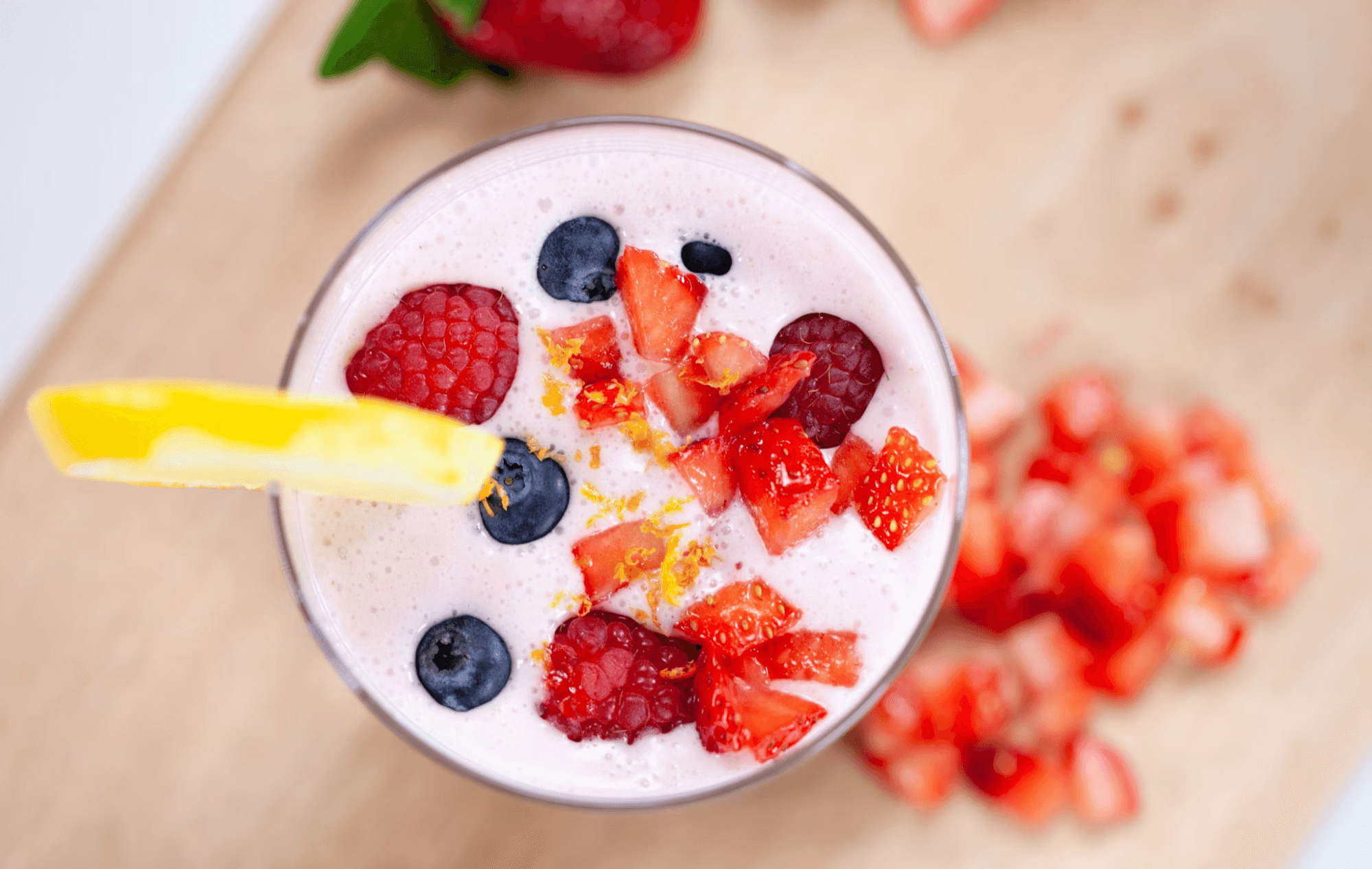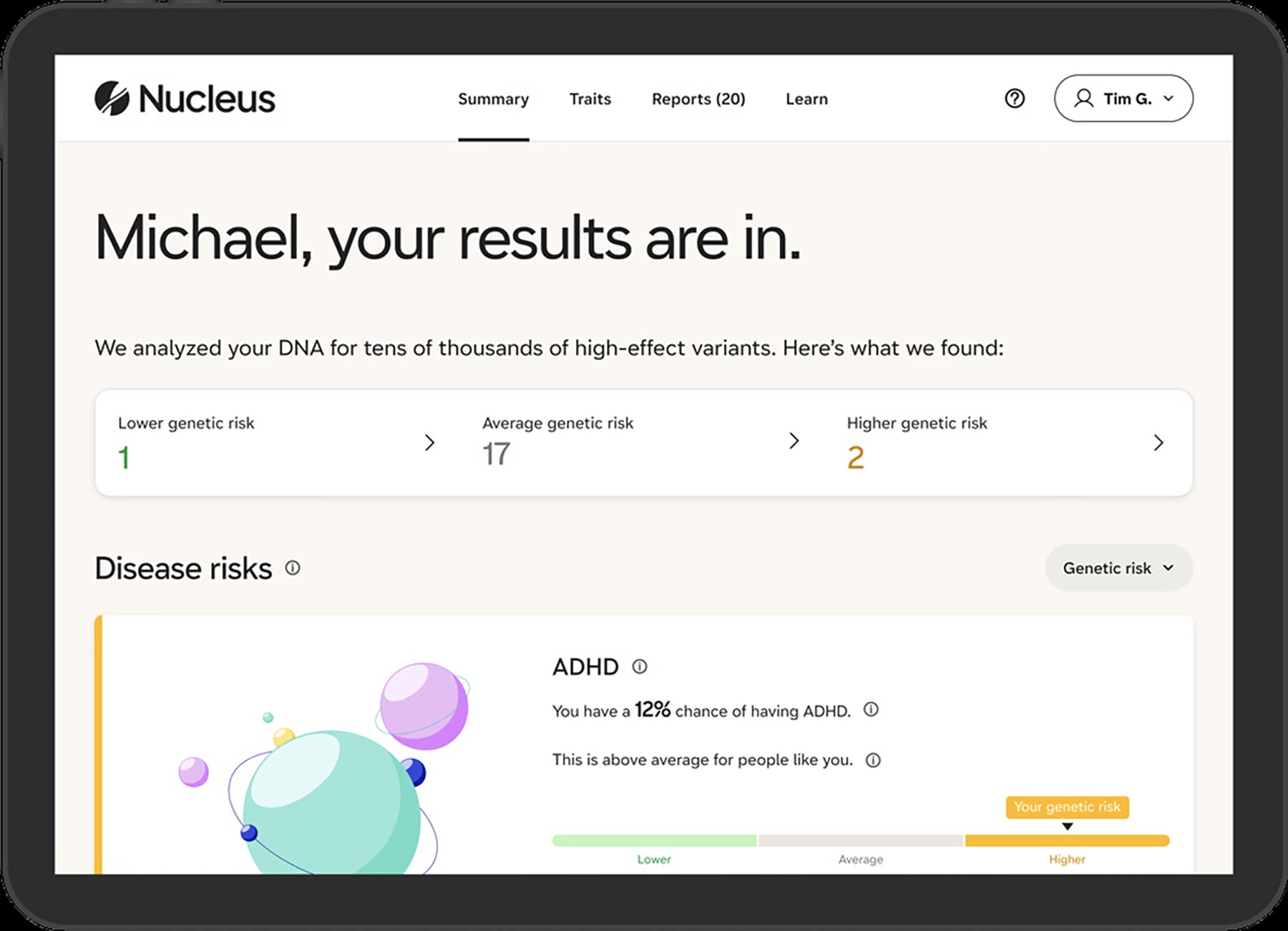Biohacking is quickly gaining popularity as more people seek ways to improve their health, performance, productivity, and longevity.
With so many different approaches, from simple dietary tweaks to costly red light therapy devices, most find it hard to decide where to start.
On top of that, numerous influencers in the biohacking sphere promote their biohacking tips and techniques, some of which are contradictory. Would-be biohackers are left wondering whose advice to follow and which strategies are most effective for their goals.
In this guide, we’ll explain the key concepts behind biohacking and explore some of the top influencers to follow for the latest biohacking trends. We’ll also recommend a targeted, DNA-based method for personalizing your approach and maximizing the value you can get from your efforts.
Biohacking definition: Taking control of your biology
Biohacking involves employing various methods and techniques from biology, nutrition, genetics, and neuroscience to enhance overall health and well-being, boost physical and cognitive performance, and achieve longevity while maintaining youthfulness. It can also help with specific, short-term goals like weight loss, depression, and anxiety or alleviate the symptoms of certain chronic conditions.
This set of practices can include simple methods, such as dietary modification, or advanced technologies like light therapy or gene editing.
You can start with simple, accessible tweaks like intermittent fasting or cold showers or delve into nootropics and nutrigenomics, which analyze how your genes interact with nutrition.
Tip: For a more targeted biohacking approach, you can use the Nucleus DNA test to uncover how your genes determine your body’s reaction to certain nutrients, health practices, and lifestyle choices.
The most popular types of biohacking
The most popular types of biohacking are:
Nutrigenomics
Physical biohacking
Cognitive biohacking
Nutrigenomics

Source: Nature Zen
Nutrigenomics is a new discipline that focuses on unraveling how nutrients interact with your genetics. According to some experts in the field, understanding these correlations helps you tweak your diet to align with your genetic makeup, optimizing your health with nutrition.
For example, after a DNA test, you might discover that your body metabolizes fats more efficiently than carbs, prompting you to eat a diet higher in fats. You could also find that your body struggles with digesting certain foods, which could lead to inflammation, and decide to leave them out of your diet.
Note: Nucleus’s DNA test can help you tailor your diet to your genome by screening for predispositions to alcohol dependence, celiac disease, and type 2 diabetes.
Bonus read: Limitless Life nootropics
Physical biohacking
Physical biohacking is among the simplest types you can employ and is an excellent way to begin your health journey. It includes methods that improve the body’s physical performance through practices like:
Exercise routines
Intermittent fasting
Cold exposure
Sauna
Red light therapy
Physical biohacking aims to keep your musculoskeletal system in prime condition, which is one of the crucial longevity factors. The idea is that biohacking your body helps it adapt to stressors by boosting endurance, strength, energy, and overall vitality.
Physical biohacking often overlaps with technological biohackin, as many biohackers use devices like wearable fitness trackers, smart watches, and blood sugar level measuring portables to record their sleep, heart rate, and blood sugar levels and make data-based positive adjustments.
Cognitive biohacking
Boosting cognitive performance and brain health is an essential part of biohacking. These practices enhance productivity and quality of life and may also improve longevity by reducing the risk of Alzheimer’s and Parkinson’s diseases.
Common techniques for biohacking brain health include meditation, mindfulness, reading, or using adaptogens and nootropics—substances believed to improve focus and memory. These include NAD+, known for numerous benefits for cognitive function and overall brain health but also caffeine, ashwagandha, and many others.
4 biggest names in the biohacking field and their approaches
The most prominent names in biohacking include Bryan Johnson, Rhonda Patrick, Mark Hyman, and Andrew Huberman. Check out their approaches and results.
1. Bryan Johnson
Bryan Johnson is the most talked about personality among biohacking fans, devoted to slowing biological aging and optimizing health and longevity through data-driven biohacking methods.
Johnson is a successful tech entrepreneur and spends around $2 million a year on his Blueprint protocol — documented and shared online — focusing on four core areas:
Strict daily routine: His days are meticulously planned, including sleep, nutrition, workouts, supplementation, and the health-enhancing devices he uses.
Planned nutrition: He eats a precisely planned plant-based diet rich in vegetables, legumes, and superfoods like macadamia nuts. He also does intermittent fasting and takes around 100 supplements a day to optimize his nutrition, including his own Blueprint Supplement Stack.
Fringe experimental procedures: Johnson has been in the limelight more than once for using unconventional methods like gene therapy, blood transfusions, stem cell injections, taking human growth hormones, etc.
Extensive testing: Much of his $2M yearly budget is spent on regular tests performed by his team of 30 doctors and health experts in his private health facility. The data obtained is used to tweak his protocol regularly.
Johnson’s biohacking protocol relies heavily on various devices aimed at skin health and recovery, such as red light therapy, IPL, Whoop, and more.
Instagram: bryanjohnson_
Bonus: Bryan Johnson supports using genetic testing for tailored, efficient biohacking, which is why Nucleus was the official DNA testing platform for his Don’t Die Summit.
2. Dr. Rhonda Patrick
Dr. Rhonda Patrick is a biomedical scientist and founder of FoundMyFitness, a platform where she shares information on biohacking and longevity. She is best known for making complex health science accessible to the public, similar to Dr. Andrew Huberman.
Her research focuses on optimizing longevity through nutrition, lifestyle changes, and supplementation. Due to her Ph.D. in biomedical science, she has published numerous articles on epigenetics, the microbiome, and the effects of micronutrients on inflammation and cognitive function.
The most important daily habits she recommends for health and longevity include:
Omega-3 consumption: For maintaining heart health and supporting cognitive function
Regular exercise: To promote cardiovascular health, improve longevity, fight inflammation, and boost mental health
Intermittent fasting: To support cellular repair, boost metabolism, and maintain a caloric deficit
Sauna use: To promote stress reduction, improve mood, and reduce inflammation
Protein and nutrient-dense diet: To optimize her diet based on data obtained from DNA testing, Patrick eats a whole-food diet and takes a complex supplement stack daily to get all the nutrients
Regular sleep: To improve mood, boost cognitive function, and reduce health risks
Exercise snacks: Short bursts of movement and exercise that counteract the harmful effects of a sedentary lifestyle
Dr. Rhonda Patrick has a popular YouTube channel and hosts a podcast in which she discusses various topics related to health and longevity, as well as biohacking for women.
Instagram: foundmyfitness
3. Mark Hyman, MD
Dr. Mark Hyman takes a holistic, food-centered approach to biohacking and is one of the pioneers of functional medicine. Hyman promotes the philosophy of “food as medicine,” calling for nutrient-rich diets tailored to individual needs.
His work also focuses on treating the root causes of diseases — like inflammation, oxidative stress, and nutrient deficiencies — rather than treating symptoms.
Hyman promotes a so-called pegan diet, which combines the benefits of paleo and vegan nutrition. It includes whole foods, healthy fats, low-glycemic vegetables, and high-quality protein intake.
Check out Mark Hyman’s core biohacking practices in the following table:
Besides focusing on functional medicine and diet, Dr. Hyman emphasizes meaning, purpose, and relationships as crucial for longevity.
He discusses his biohacking approach at length on his YouTube channel, health and wellness podcast, his latest book, Young Forever, and other biohacking books.
Instagram: drmarkhyman
4. Andrew Huberman, Ph.D.
Dr. Andrew Huberman is a neuroscientist and professor at Stanford University. He is known for his work on neuroplasticity, brain function, and human performance.
He hosts one of the most popular biohacking podcasts, the Huberman Lab, where he dissects scientific evidence and shares insights into optimizing various aspects of health.
Huberman’s approach to biohacking relies heavily on neuroscience and scientifically proven protocols around exercising, diet, different types of nootropics, sleep, and mental health.
Here’s what Huberman’s daily biohacking protocol for longevity and health entails:
Instagram: hubermanlab
Does biohacking really work?
Even though biohacking appears to be a promising practice, its methods and techniques are mostly not scientifically proven, and the results vary from person to person. Many biohacking influencers share different, sometimes conflicting, approaches, and there is no official consensus in the scientific community, so choosing the right method is challenging. Also, applying inadequate techniques may yield disappointing outcomes or even harm your health.
Most influential biohackers have vast resources and tech backgrounds, so their methods and support systems are typically unavailable to regular people. Still, you can start taking control of your health and introducing meaningful changes by understanding your genetic makeup.
With Nucleus’ DNA test, you can analyze your genetic data, understand your body needs, find out which diseases you’re susceptible to, and design an efficient, personalized protocol to make the best use of your time and resources while contributing to your health, performance, and longevity.
Nucleus at-home DNA test kit: What your genes say about you

With so much noise in biohacking and other health-optimization fields, Nucleus’ clinical-grade DNA test kit is your first step to decoding your organism and environment and, consequently, a healthier lifestyle and optimal functioning.
Nucleus offers whole genome sequencing (WGS) to provide valuable insights into over 170 health conditions and 9 longevity traits, such as:
Nucleus’ report presents actionable data and advice on optimizing your diet, exercise, supplements, and wellness strategies based on your genetic makeup and health risks.
Nucleus partners with SteadyMD, an independent network of doctors who can help you better understand your test results. With Nucleus Premium, you also get regular updates on your report as new research and evidence emerge and your routine changes.
How to order a Nucleus test kit?
Ordering a Nucleus test kit is easy:
Sign up for Nucleus Premium
Provide the required information
Order Nucleus’ at-home DNA test kit
Once the kit arrives, collect your cheek swab sample by following the instructions and send it back using the pre-labeled return envelope. Your results will be ready in 6–8 weeks and available in your Nucleus account.
Nucleus partners with CAP and CLIA-certified labs to guarantee reliable results and is HIPAA compliant, so your information is secure.
Featured image source: protocol.bryanjohnson.com












